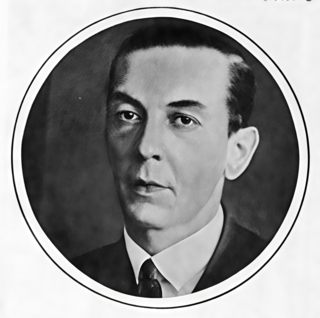Theodor von Hornbostel

Personalia
Born:
Died:
Profession:
Persecution:
Imprisonment 13.03.1938 - 02.04.1938,
Dachau concentration camp 02.04.1938 - 26.09.1939,
Buchenwald concentration camp 26.09.1939 - 15.04.1943,
Discharge 29.11.1938
KZ Number:
Memberships
Curriculum Vitae
Theodor von Hornbostel was born as one of three children of Max Georg von Hornbostel, chief inspector in the Ministry of Railways, and his wife Helene, née Filtsch. His mother is a Transylvanian pastor's daughter, which is why the children are brought up as Protestant Christians.
His grandfather was the silk manufacturer and Austrian Minister of Trade in 1848, Theodor Friedrich von Hornbostel. After being the first president of the Vienna Chamber of Commerce and co-founder and top functionary of Creditanstalt, he was elevated to the nobility.
Theodor von Hornbostel attended the Theresianum in Vienna and then the Consular Academy, where he graduated in 1912 receiving the Imperial Prize for the best student of the year, which is only awarded every five years. In December 1912 he was assigned to the criminal and inheritance law department at the consulate in Istanbul . In June 1913, he was posted as consul to the Albanian port of Durres, where he also witnessed the outbreak of the First World War. After assignments in Ioannina and Athens he returned to Vienna in February 1917, where he was personally awarded the Military Cross of Merit by Emperor Karl for his services.
Theodor von Hornbostel then became a member of the Austro-Hungarian prisoner-of-war mission. His career there took him to St. Petersburg and Moscow in 1917 and 1918.
After the collapse of the monarchy in 1918, he entered the service of the First Republic and was sent to the mission in Budapest. Between 1926 and 1930, he moved to Istanbul as Vice Consul.
In 1930, Theodor von Hornbostel returned home and worked in the Foreign Office.
He negotiated the Concordat with the Vatican, had to deal with the complications surrounding the Customs Union Agreement with Germany and took part in numerous meetings of the League of Nations. In April 1933, he became head of the Political Department of the Foreign Office under Federal Chancellor Engelbert Dollfuß and is also one of the few who can give a detailed account of the events in the Federal Chancellery during the attempted coup and the assassination of Federal Chancellor Engelbert Dollfuß by the National Socialists on July 25, 1934. In October 1933, he was promoted to Extraordinary Envoy and Minister Plenipotentiary. After the resignation of Vice-Chancellor Ernst Rüdiger Prince Starhemberg in July 1936, it was surprisingly not Theodor von Hornbostel but Guido Schmidt State Secretary for Foreign Affairs under Federal Chancellor Kurt von Schuschnigg. Theodor von Hornbostel is the diplomat who, on the eve of the invasion of Austria by German troops, uses his excellent connections to intervene by telephone in London, Paris and Rome. Unfortunately without success.
In the night of March 11, 1938 to March 12, 1938, Theodor von Hornbostel was placed under house arrest by Kajetan Mühlmann on behalf of the SS. In the morning hours of March 12, 1938, the SS took over guarding him. On March 13, 1938, he was finally picked up by the SS and taken to the SS barracks on Concordia Platz. On March 17, he was taken from there to the police barracks in Elisabethprominade.
Theodor von Hornbostel arrived at Dachau concentration camp on April 2, 1938 on the so-called Prominent Transport. In November 1938, he was released as an official of the Foreign Office. While he was in solitary confinement in Dachau concentration camp, his mother died. After the German Wehrmacht invaded Poland in September 1939, Dachau concentration camp was cleared for the SS and Theodor von Horbostel was deported to Buchenwald concentration camp on September 26, 1939. He was released there on May 15, 1943.
I managed to find accommodation in the literary office at IG Farben, where I spent two years, countless bombing raids, the excitement of July 20, 1944 (in the circle of those who were later hanged!) reading all the newspapers, radio broadcasts, 'loot files' and their translation and the like, quite pleasantly. However, the Gestapo raided me several times and also made inquiries about my 'political behavior'.
There he witnesses the liberation by the Red Army. Having mastered the Russian language, he worked as an interpreter for the Russian commander. He was given 22 communities to administer.
Theodor von Hornbostel managed to make contact with the Austrian committee at the Potsdam Conference. Through this contact, he was able to return to his native Austria on September 26, 1945.
After his return home, Theodor von Hornbostel withdrew from politics and retired at the end of 1946. He refuses all requests to return to politics, including as a federal minister, and moves to Gmunden.
In 1947 and 1948, he testifies twice at the Nuremberg trials in the IG Farben trial and the Wilhelmstrasse trial. In 1948, he joins the ÖVP Comradeship of Politically Persecuted and Confessors for Austria.
As early as 1946, he revives the idea of Central Europe with his article Organization of the Danube Region in the weekly newspaper Die Furche. In 1953, he was co-founder and first chairman of the Research Institute for Danube Region Issues [today: Institute for the Danube Region and Central Europe]. He only resigned from this position in 1970.
Places
Residence:
Persecution:
Citations
Döner, Christian/Dörner-Fazeny Barbara (2006): Theodor von Hornbostel. 1889 - 1973 (Wien)
Dokumentationsarchiv des österreichischen Widerstands (DÖW)
Wikipedia unter de.wikipedia.org/wiki/Theodor_Hornbostel
